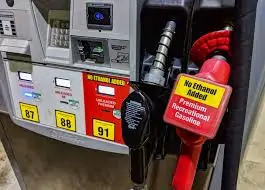Having to fill up your gas tank is one common denominator that can unite drivers from around the globe. We’ve all had the moment of panic where our gas light has lit up, and there is no gas station in sight, and the relief of pulling up to a pump just in the nick of time. We’ve also all probably pulled up to a gas station and delivered our standard order of “$20 regular,” opting to completely ignore the price of premium gas listed on the marquee. But what does this mean, really? What is the difference that exists between regular and premium gasoline, and should we perhaps start considering paying a little extra in order to receive the benefits that premium gasoline has to offer.
The difference between premium gasoline and regular gasoline lies in the octane levels that each contains. In short, premium gasoline has a greater octane level than that of its regular counterpart. But what does a higher-octane level mean, and why is it preferential? Well, having a higher-octane level in your gasoline means that it will be less likely for engine combustion to occur at the wrong time. When an engine combusts at the wrong time it is referred to as an “engine knock,” due to the knocking sound that accompanies it. A single or occasional engine knock is likely not going to harm your vehicle, but if it is happening consistently, then we’ll probably be seeing you soon at our Staten Island auto body repair shop! Click here to read more about the mechanics behind what we will be looking at when working on your engine.
To find out if you should be opting for premium gasoline, you should check what your vehicles manufacturer recommends. You can do so by checking inside the owner’s manual that came with your vehicle, or by reading the sticker on the inside of the fuel door. If your vehicle’s manufacturer does not specify that premium gasoline is preferred, then there is no real benefit to be had by opting to utilize it. However, if your vehicle’s manufacturer does recommend premium gasoline, utilizing regular gasoline could cause long term damage to your engine. Spending a little bit of extra money on premium gasoline may just save you from having to spend the money to replace your car’s engine, so finding out if your vehicle recommends the use of premium gasoline can be very helpful in the long run.

